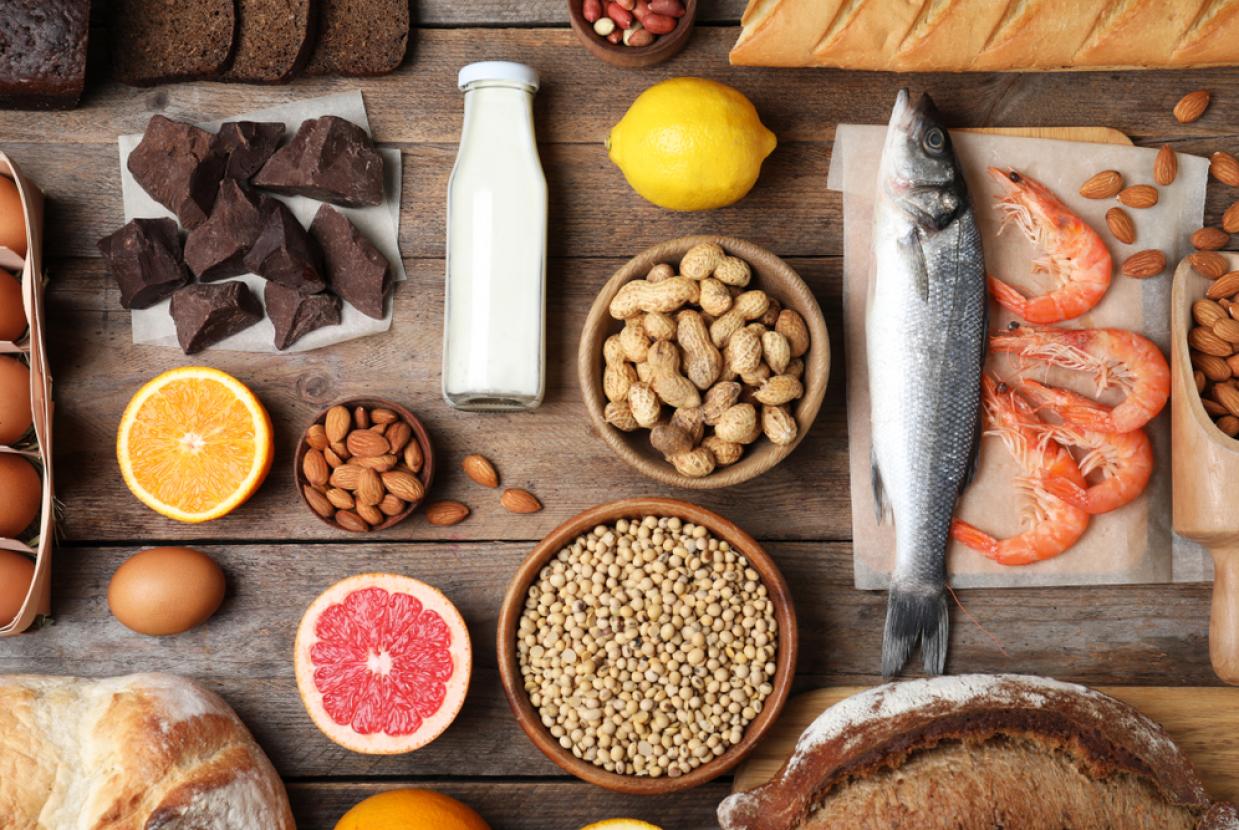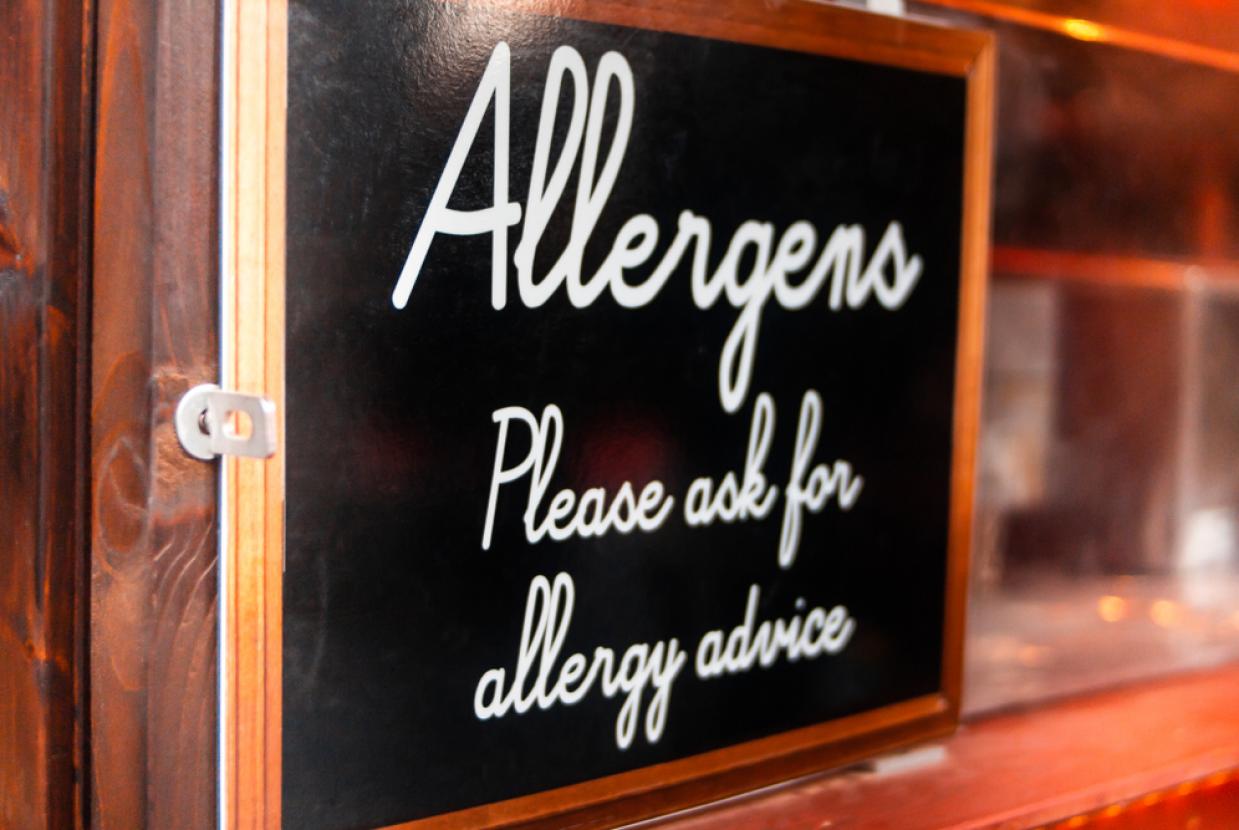Milk Allergy
Cow’s milk allergy (also known as cow’s milk protein allergy or CMPA) is an abnormal response by the body’s immune (defence) system in which proteins in a food (in this case cow’s milk) are recognised as a potential threat. This can cause the immune system to be ‘sensitised’. When this happens, there is the potential that when cow’s milk is consumed the immune system remembers this protein and may react to it by producing allergic symptoms.
Whilst cow’s milk allergy is one of the most common food allergies to affect babies and young children in the United Kingdom it is still rare. Formula fed babies, although very rarely, breastfed babies can also be affected. Allergic symptoms to CMPA can happen immediately after feeding or they can be delayed. In the case of immediate symptoms such as swelling of the lips or the tongue or breathing difficulties, immediate medical help must be sought.
Types of cow’s milk allergy
There are two types of cow’s milk allergy depending on how the immune system reacts. Symptoms that are ‘immediate’ (quick to appear) are caused by the immunoglobulin E antibody (called IgE). Typically these allergic symptoms happen within minutes of consuming cow’s milk or up to two hours afterwards. This type of reaction is described as IgE mediated food allergy.
The other type of milk allergy happens when symptoms are ‘delayed’ (slow to appear) and are caused by a different part of the immune system reacting in a different way. This type of reaction is described as Non-IgE mediated food allergy and is the most common type. The symptoms typically develop from two hours after consumption but can take up to 72 hours. If cow’s milk continues to be consumed in the diet, the immune system will continue to produce such symptoms over days or even weeks.
What should I do if I suspect that my child has symptoms of Cow’s Milk Allergy?
The key message: Do not delay in seeking advice from your GP or Health Visitor. They will be able to assess whether the symptoms may be due to milk allergy or there is another cause.
They will listen to your concerns and take an allergy focused history (a series of questions to help decide if allergy is a possible cause of the symptoms). It may be necessary for the doctor to carry out a physical examination. To get the best from your appointment, it may be useful to write down the answers to the questions below before attending and take them with you for discussion.
Choice of alternative cow’s milk substitutes
A cow’s milk free diet means avoiding the proteins in cow’s milk, which are called whey and casein, and also avoiding milks from many other four legged mammals as their milk proteins are so similar. Therefore, goat and sheep milks are not suitable alternatives for children suffering from cow’s milk allergy.
Breastfeeding
Breast feeding provides the best source of nutrition for your baby. Breast fed babies can react to milk proteins that are transferred in breast milk from the mother’s diet. If it is suspected that a baby is reacting to cow’s milk protein via breast milk, a mother may be advised to avoid cow’s milk and dairy products in their diet while breastfeeding. This involves a trial of up to six weeks to see if the baby’s symptoms improve. If they do not and the breast-feeding mother had been following a strict cow’s milk free diet, she can then return to her normal diet.
Hypoallergenic formula
In babies who are solely infant formula fed or are given infant formula in addition to breast milk, the formula will need to be changed to a hypoallergenic (low allergy) infant formula. Extensively hydrolysed infant formulas still contain cow’s milk protein, but the proteins have been broken down into smaller pieces so the immune system is less likely to identify them as harmful. Most infants with cow’s milk allergy will be able to tolerate these. For those who still have symptoms on an extensively hydrolysed formula, an amino acid formula is required. This formula is not based on cow’s milk and the protein is completely broken down.’ The GP, health visitor or dietitian may make recommendations about these formulas which are available on prescription from the GP. This will take into account the baby/child’s age, how severe allergic reactions are, other allergic conditions or a family history of allergy and dietary needs. For more information on suitable milk substitutes for your baby, see the BDA factsheet.
Moving onto a hypoallergenic formula
It can be difficult to get a baby to accept a different formula and hypoallergenic formulas have a different taste and smell to ordinary infant formula. Most babies under three to four months of age will readily accept the change. For older babies and children who have delayed allergic reactions, it may help to gradually introduce it over a number of days, mixing it with their usual milk until they get used to it or, failing that, adding a drop of vanilla essence/extract (ensuring that this is alcohol free) to the bottle. You may notice during this change that your baby’s poo changes colour (dark green) and they may also poo less often. This is quite normal and is not a cause for concern.
Once a cow’s milk allergy diagnosis has been made, your baby or child will need regular assessment by a dietitian to make sure that they are still on the most suitable formula or alternative milk substitute. If your baby or child appears to be growing out of their milk allergy, and after starting a supervised gradual re-introduction of cow’s milk, they can tolerate some foods containing cow’s milk, a dietitian can advise on when and how to stop the formula.





































